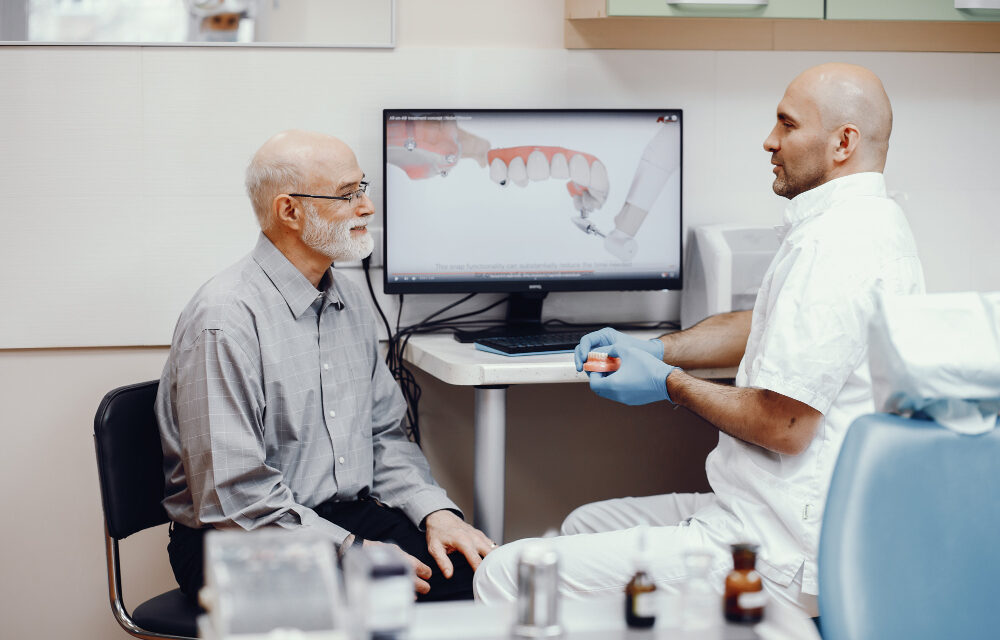Dental implants offer a remarkable solution for missing teeth, promising a more natural appearance, enhanced functionality, and longer-term durability than traditional dentures and bridges. Yet, ensuring their longevity hinges on diligent care and maintenance similar to that of natural teeth.
The Basics of Dental Implant Maintenance
1. Impeccable Oral Hygiene
Brush your teeth and implants gently twice daily using a soft-bristled toothbrush and fluoride toothpaste. Pay close attention to the gum line and implant surfaces.
Daily flossing removes debris and plaque between implants and natural teeth. Use dentist-recommended specialized tools like interdental brushes or water flossers.
• Brushing: For effective oral care, use a soft-bristled brush with fluoride toothpaste, dedicating at least two minutes to gently brushing teeth and implants. Prioritize the gum line and implant surfaces, ensuring thorough coverage, including the tongue and inner cheeks.
• Flossing is crucial: Use dental floss or interdental brushes gently between teeth and implants, ensuring comprehensive cleaning without causing harm to the gums.
• Oral Hygiene Tips: Include an antimicrobial mouthwash in your routine, rinsing your mouth post-meals to ward off any residue. Avoid abrasive toothpaste or teeth whitening products that could potentially damage your implant surfaces.
2. Optimal Tools for Care
In addition to brushing and flossing, employing interdental brushes, soft picks, or water flossers can effectively clean hard-to-reach areas around implants.
3. Regular Dental Check-ups
Regular visits to the dental office for check-ups and cleanings are imperative. These appointments help assess the implant’s condition, ensure professional cleaning to eliminate accumulated plaque and tartar, and detect and address potential issues early on.
4. Mindful Diet and Lifestyle Choices:
Avoid chewing on hard or sticky items that could stress implants. A balanced diet supports oral health, and steering clear of smoking and excessive alcohol consumption mitigates complications linked to implants.
Make thoughtful lifestyle choices such as switching to a low-sugar, nutrient-rich diet, and sidestepping tough or sticky foods that might strain your implants. Steer clear of smoking and excessive alcohol intake to preserve your implant’s health.
5. Additional Care:
Additionally, these practices complement the primary care routine, ensuring your dental implants stay in optimal condition for the long term.
• Healthy Diet: A nutritious diet rich in fruits, vegetables, and whole grains contributes to overall and oral health, supporting gum health and reducing the risk of gum disease.
• Hydration: Drinking plenty of water hydrates and prevents dryness in the mouth, reducing susceptibility to infections.
• Stress Management: Manage stress effectively as it can contribute to gum disease. Engage in activities like exercise, yoga, or meditation for a healthier mindset and gums.
Don’t hesitate to consult your dentist about any dental implant-related queries or concerns.
By following these seven comprehensive maintenance tips, you can significantly enhance the durability and success of your dental implants, ensuring a confident smile and optimal oral health for years to come.


